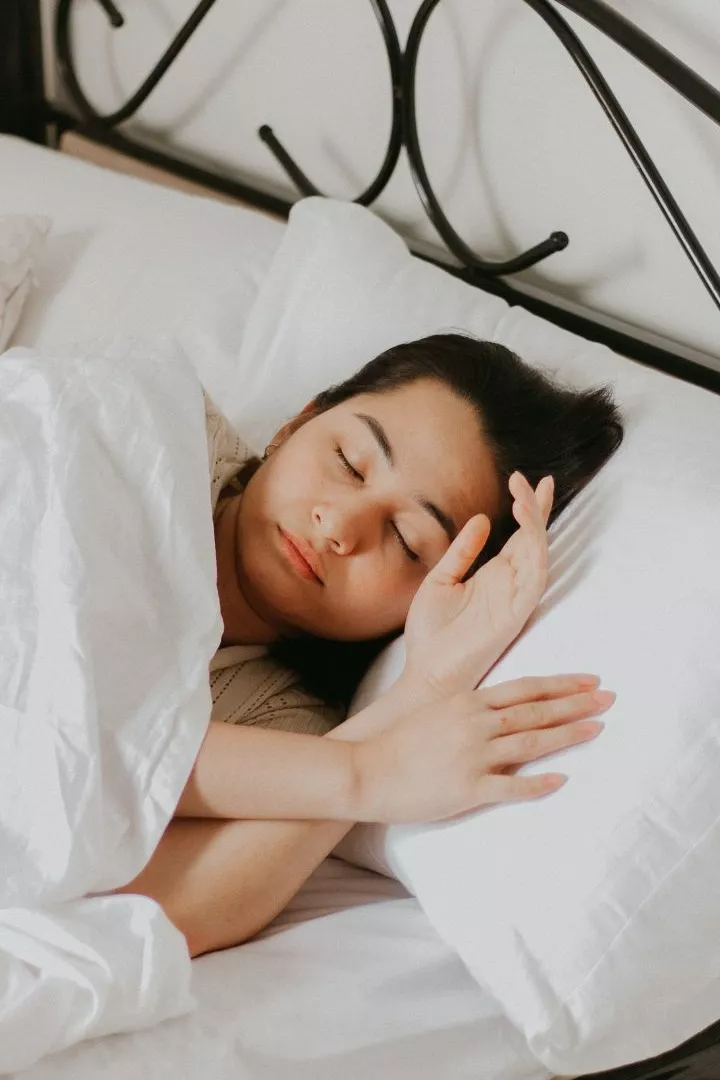

10 tips to sleep better
Struggling to sleep? Check out these 10 actionable tips for better sleep


1. Consistent Sleep Schedule
Focus on having a strict sleep schedule.


2. Relaxing Bedtime Routine
Bedtime routine should start one hour before bedtime.


3. Optimize Your Sleep Environment
It should be calm and relaxing
4. Limit Exposure to Screens
Keep gadgets away
5. Watch Your Diet
Avoid those that can keep you awake
6. Get Regular Exercise
Even light exercise will do
7. Manage Stress and Anxiety
Focus on mindfulness and meditation
8. Limit Naps
Remove long naps eventually from daytime schedule
9. Be Mindful of What You Consume
Pay attention
10. Seek Professional Help When Needed
You deserve better
Other stories
Check out the other stories from Guilt Free Mind
The blog
Swipe up to check out the Guilt Free Mind blog
Watch Next
Try to go to bed and wake up at the same time every day, even on weekends. This helps regulate your body's internal clock and improves sleep quality over time.
Develop calming bedtime rituals to signal to your body that it's time to wind down. This could include activities like reading, taking a warm bath, or practicing relaxation exercises.
Make your bedroom conducive to sleep by keeping it cool, dark, and quiet. Invest in a comfortable mattress and pillows, and consider using blackout curtains and white noise machines if needed.
The blue light emitted by smartphones, tablets, and computers can interfere with your sleep-wake cycle. Avoid screens at least an hour before bedtime, or use blue light filters on your devices.
Avoid heavy meals, caffeine, and alcohol close to bedtime. These can disrupt sleep or make it harder to fall asleep. Instead, opt for a light, balanced snack if you're hungry before bed.
Engage in regular physical activity, but try to finish your workout at least a few hours before bedtime. Exercise can help you fall asleep faster and enjoy deeper sleep.
Practice stress-reduction techniques such as mindfulness meditation, progressive muscle relaxation, or deep breathing exercises. Managing stress can significantly improve sleep quality.
While short power naps can be rejuvenating, long or irregular naps during the day can disrupt your nighttime sleep. If you need to nap, keep it brief (around 20-30 minutes).
Limit your intake of fluids close to bedtime to reduce the likelihood of waking up to use the restroom. Also, avoid spicy or acidic foods that can cause discomfort.
If you consistently struggle with sleep despite trying these tips, consult a healthcare professional or a sleep specialist. There may be underlying issues like sleep disorders that require medical attention.
Do you want to read other web stories like this one? Then click on the tab that says other stories.
Guilt Free Mind is a mental health blog primarily focusing on helping people lead more fulfilling and positive lives. If you wish to boost the quality of your present and future, subscribe to guiltfreemind.com.